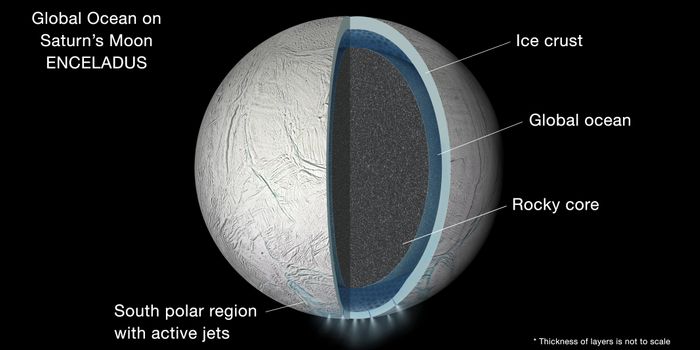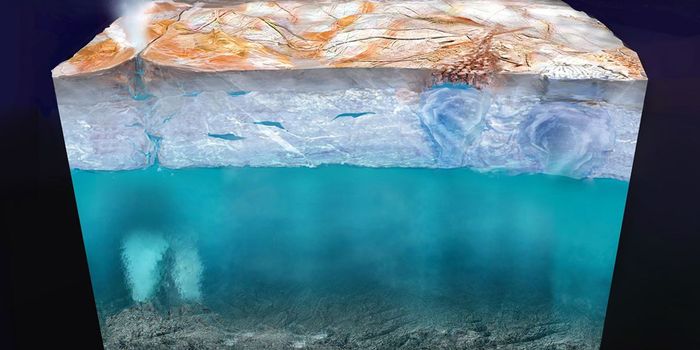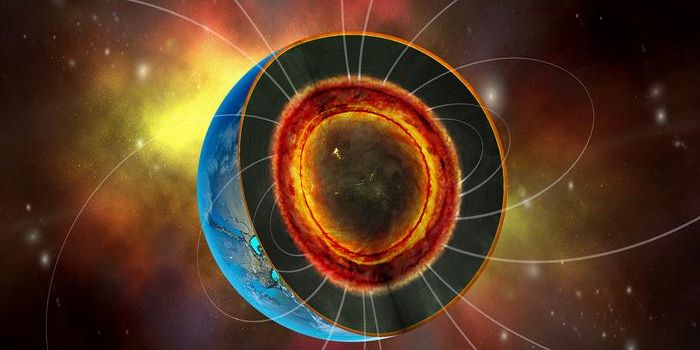NASA's VERITAS Mission has Funding Cut, Delays Mission by Minimum of Three Years
In a turn of unfortunate events, the science world was stunned to learn yesterday at the Lunar and Planetary Science Conference (LPSC) 2023 that all funding for NASA’s upcoming VERITAS mission to Venus has been pulled, which was announced by mission Principal Investigator, Dr. Sue Smrekar, at the VEXAG town hall meeting during the conference. While this funding cut doesn’t cancel the mission entirely, it most certainly delays it.
Dr. Sue Smrekar, Principal Investigator of NASA's VERITAS mission, informing the crowd at a town hall at LPSC 2023 on March 15, 2023, that funding for VERITAS had been pulled. (Credit: Dr. Paul Byrne)
“This (long, long) delay to the VERITAS mission is beyond disappointing,” Dr. Paul Byrne, Associate Professor of Earth and Planetary Sciences at Washington University in St. Louis, told Labroots. “The Venus community in the U.S. has waited for a return to the second planet since the 1990s, and what looked to be the crest of a new wave of Venus missions has crashed apart with the undeserved delay to VERITAS.”
While Dr. Byrne is not affiliated with VERITAS, he considers himself “an enthusiastic supporter of the mission,” and frequently tweets about his passion for the planet Venus, including the recent finding that Venus is volcanically active.
The VERITAS mission was selected along with a sister mission to Venus, DAVINCI, in June 2021 to conduct a more thorough examination of the second planet from the Sun and was due to launch between 2028 and 2030. While Dr. Byrne tells Labroots he’s known about the delay since the fall of 2022, he didn’t learn about the details of the funding cut until yesterday from Dr. Smrekar. He also says there hasn’t been a “clear explanation” as to the reason, or reasons, behind NASA cutting the funding for the mission.
Artist rendition of NASA's VERITAS mission orbiting venus. (Credit: NASA/JPL-Caltech)
“The VERITAS science team now has an undeserved and unfair throttling back of their work for at least three years,” Dr. Byrne told Labroots. “The VERITAS engineers have been assigned to other projects, so virtually no development of the mission itself is taking place. The science we would have gotten from VERITAS is now going to arrive at least three years later than planned.” He notes that VERITAS will still accomplish “some killer science,” and the delay will likely not impact VERITAS accomplishing its mission objectives, as well.
For now, the only Venus data NASA has been working with is from the Magellan mission, which occurred between 1989 and 1994. And while such data has been able to confirm that Venus is presently volcanically active, new data would no doubt help complement, or perhaps refute, these findings.
“We were expecting a new era of Venus science in the late 2020s; now, we will have to wait until the 2030s at least for VERITAS,” Dr. Byrne said. He additionally noted that NASA’s DAVINCI mission to Venus is still active, but it’s science mission will be different, as DAVINCI will be tasked to examine Venus’ atmosphere. “There is a third mission, ESA's EnVision radar mapping mission, under development for flight to Venus in the early 2030s. Several aspects of EnVision's science were going to be substantially augmented by the data VERITAS was going to return. But now it looks as if VERITAS and EnVision will be at Venus at the same time, a far from optimal situation.”
While the VERITAS funding cut and mission delay is unfortunate, it’s more important than ever to remain positive for the insightful information that VERITAS will undoubtedly reveal about the second planet from the Sun, which could shed new light on how the present-day Venus came to be in such stark contrast to Earth’s far more hospitable environment. What else will VERITAS teach us about Venus once it arrives there?
Sources: Twitter, Twitter (1), NASA, NASA (1), NASA (2)
As always, keep doing science & keep looking up!










